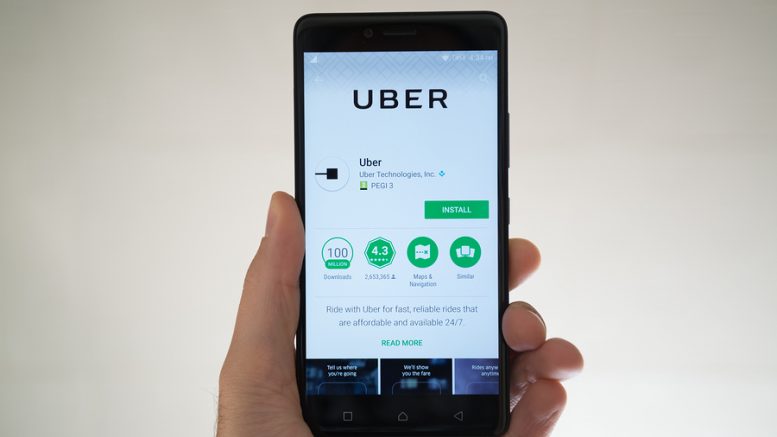Around mid-September, a number of consumers received an email about a class-action lawsuit against Uber regarding its claims about its Safe Rides Fee. Since there are so many scams these days, we’re helping you determine if this email is legitimate, and if it is, how you can ensure that you’re properly compensated. Continue reading to find out.
Is Uber’s Safe Rides Fee settlement legitimate?
The Safe Rides Fee lawsuit is a real class-action lawsuit. Details about the case, officially referred to as the McKnight v. Uber settlement, can be found on the site https://www.ridesharesettlement.com. Any emails about the case should have come from the address [email protected]. If you received an email from any other email address, you should not click on any links, as it could be a phishing email, and instead visit the visit the settlement page noted above.
While Uber is currently contending with a number of lawsuits regarding its business practices and treatment of drivers, this Safe Rides Fee lawsuit specifically deals with the nature of its mischaracterization of the thoroughness of its background checking process. While it denies the allegations, Uber has agreed to a settlement and has since changed the language describing the background check process. It also changed the Safe Rides Fee name to Booking Fee in order to avoid confusion about the rigor and costs associated with its background checking process. The payout of the lawsuit has also increased from $28.5 million to $32.5 million, so that consumers could receive slightly better compensation.
How does the lawsuit affect you?
The settlement affects all Uber customers who requested rides from January 1, 2013 to January 31, 2016 whenever a Safe Ride Fee was present. Uber’s Safe Rides Fee was specifically charged to riders who took an UberX in U.S. markets nationwide. Individuals who are eligible for the settlement are entitled to a payout that will average about $1.07 per class member, although you can calculate your own settlement share by starting with $0.25 for your first UberX ride and adding $0.05 for each subsequent UberX ride taken during the period designated in the lawsuit. This amount will be relevant if you choose to exclude yourself from the class-action lawsuit in order to pursue a case with Uber on your own.
If you received an email, you are automatically included in the suit, which means no action is required unless you wish to change your compensation method (see details below). Those who meet the criteria established by the settlement, but haven’t received an email still have the ability to file a claim online before the Jan. 8, 2018 deadline (noted below). Just be aware that you’ll need to submit at least one Uber receipt to prove you paid the Safe Ride Fee. If you’re not sure whether you qualify to join the settlement or you have questions about the settlement, you should reach out to the Settlement Administrator — the contact information is listed on the site.
What are my options for compensation?
If the settlement is approved, your Uber account will automatically be credited the amount you’re entitled to from the class-action lawsuit. If your account has been deleted or you wish to receive another form of compensation, you can opt to have the amount paid to you via PayPal or through an eCheck. In order to qualify for these other options, you must submit a Payment Election Form by 11:59 p.m. PT on Jan. 8, 2018. If your Uber account no longer exists, failing to submit this payment form could jeopardize your ability to be compensated.
As with all class-action lawsuits, you have the ability to remove yourself from the settlement, but you must exclude yourself by Jan. 8, 2018 or you won’t be able to sue Uber regarding the issues of this case. You can also opt to stay in the lawsuit while objecting to specific portions of the settlement by filing an objection by the deadline.
How can I verify the legitimacy of future class-action lawsuit emails?
Unfortunately, there are no hard and fast rules for differentiating between a real lawsuit email from scam email, but there are some rules of thumb that might help protect you.
1. Think before you click. When you first receive an email about a class-action lawsuit, you should skim it with some degree of skepticism and avoid clicking on any links. As mentioned above, even if the lawsuit is real, the sender might be a scammer trying to cash in on a real incident. Instead, you’ll want to open a new tab or window in your browser and do a quick Google search for the official title of the lawsuit. This will usually provide some insight as to whether or not it’s legitimate.
2. Examine the email for details. Real emails regarding class-action lawsuits should be pretty thorough, giving you instructions for a multitude of scenarios, like all the ways you can choose to receive compensation and how you can elect to decline the settlement. The email should even detail what happens if you choose to do nothing and who you should contact for more information. With this in mind, short messages simply telling you how to get any money you’re owed and encouraging you to click on a link or contact someone to learn more should be treated as spam.
3. Search the news. Usually communications about a class action lawsuit are preceded by news stories detailing the nature of the lawsuit. Even if you’re not current with the news, you should be able to Google the claims of any particular message detailing information about a lawsuit, as noted above, and see some news articles about it. In some cases, you might even be able to verify the identity of the sender who notified you about the lawsuit. If you can’t confirm the legitimacy of the sender or find any related news stories, it’s probably best that you take no action.
Because digital communication is a major part of our lives, it’s unfortunately easier for scammers to target unsuspecting victims. For more information about how to protect your email and your personal information, read our scams blog.
Source: www.nextadvisor.com





Be the first to comment on "Uber’s Safe Rides Fee Class-Action Lawsuit: Is It Legitimate?"